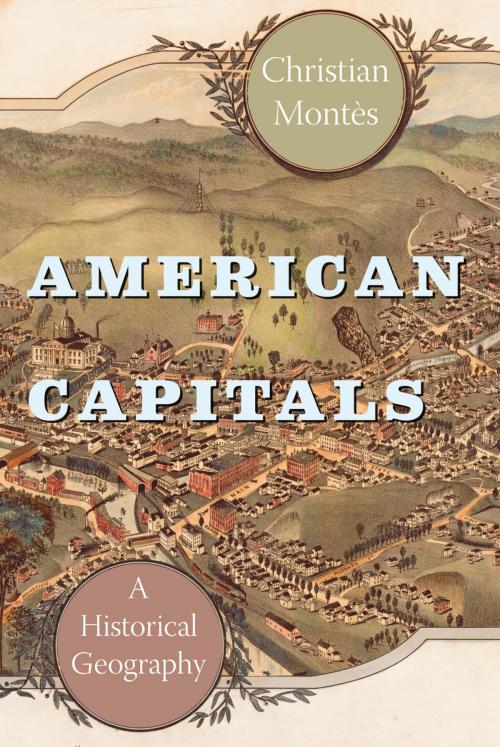American Capitals
A Historical Geography
Nonfiction, Science & Nature, Science, Earth Sciences, Geography, History, Americas, United States| Author: | Christian Montès | ISBN: | 9780226080512 |
| Publisher: | University of Chicago Press | Publication: | January 10, 2014 |
| Imprint: | University of Chicago Press | Language: | English |
| Author: | Christian Montès |
| ISBN: | 9780226080512 |
| Publisher: | University of Chicago Press |
| Publication: | January 10, 2014 |
| Imprint: | University of Chicago Press |
| Language: | English |
State capitals are an indelible part of the American psyche, spatial representations of state power and national identity. Learning them by heart is a rite of passage in grade school, a pedagogical exercise that emphasizes the importance of committing place-names to memory. But geographers have yet to analyze state capitals in any depth. In American Capitals, Christian Montès takes us on a well-researched journey across America—from Augusta to Sacramento, Albany to Baton Rouge—shedding light along the way on the historical circumstances that led to their appointment, their success or failure, and their evolution over time.
While all state capitals have a number of characteristics in common—as symbols of the state, as embodiments of political power and decision making, as public spaces with private interests—Montès does not interpret them through a single lens, in large part because of the differences in their spatial and historical evolutionary patterns. Some have remained small, while others have evolved into bustling metropolises, and Montès explores the dynamics of change and growth. All but eleven state capitals were established in the nineteenth century, thirty-five before 1861, but, rather astonishingly, only eight of the fifty states have maintained their original capitals. Despite their revered status as the most monumental and historical cities in America, capitals come from surprisingly humble beginnings, often plagued by instability, conflict, hostility, and corruption. Montès reminds us of the period in which they came about, “an era of pioneer and idealized territorial vision,” coupled with a still-evolving American citizenry and democracy.
State capitals are an indelible part of the American psyche, spatial representations of state power and national identity. Learning them by heart is a rite of passage in grade school, a pedagogical exercise that emphasizes the importance of committing place-names to memory. But geographers have yet to analyze state capitals in any depth. In American Capitals, Christian Montès takes us on a well-researched journey across America—from Augusta to Sacramento, Albany to Baton Rouge—shedding light along the way on the historical circumstances that led to their appointment, their success or failure, and their evolution over time.
While all state capitals have a number of characteristics in common—as symbols of the state, as embodiments of political power and decision making, as public spaces with private interests—Montès does not interpret them through a single lens, in large part because of the differences in their spatial and historical evolutionary patterns. Some have remained small, while others have evolved into bustling metropolises, and Montès explores the dynamics of change and growth. All but eleven state capitals were established in the nineteenth century, thirty-five before 1861, but, rather astonishingly, only eight of the fifty states have maintained their original capitals. Despite their revered status as the most monumental and historical cities in America, capitals come from surprisingly humble beginnings, often plagued by instability, conflict, hostility, and corruption. Montès reminds us of the period in which they came about, “an era of pioneer and idealized territorial vision,” coupled with a still-evolving American citizenry and democracy.















